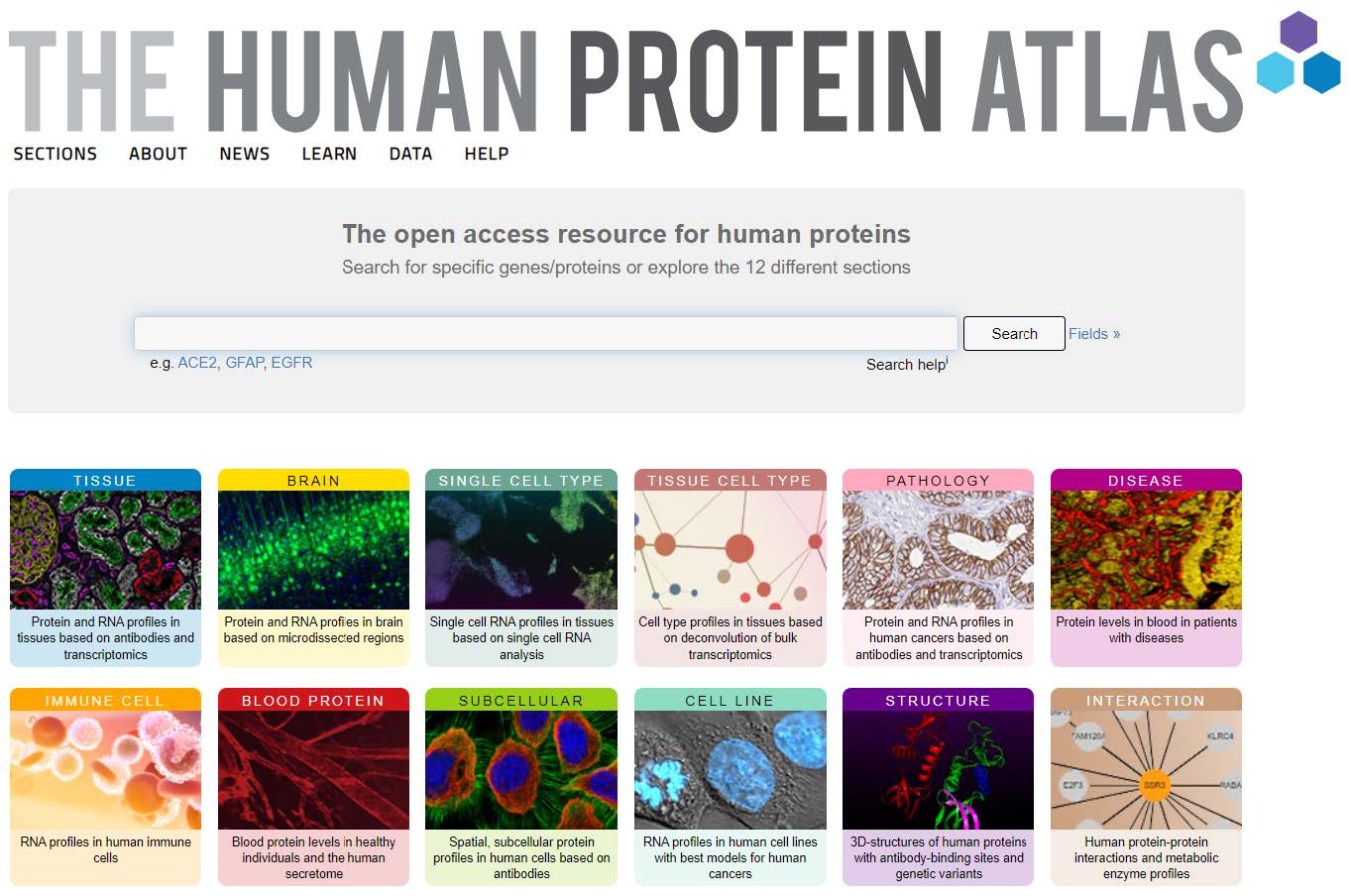Protein-protein interaction networks for more than 11,000 genes in new Human Protein Atlas release
The new version of the protein atlas includes a new Interaction section, a revised tissue section, and all five million web pages in the resource have been updated based on a new genome assembly.
A new version of the Human Protein Atlas has been released. The open access knowledge resource, covering human protein profiles in cells, tissues, organs and blood, is based at SciLifeLab and started in 2003 with the aim to map all the human proteins in cells, tissues and organs. To do this, the program uses integration of various omics technologies, including antibody-based imaging, mass spectrometry-based proteomics, transcriptomics and systems biology.
In the new version, a new Interaction section is introduced, containing data for human protein-protein interaction networks that add new aspects in terms of protein function. In addition, all five million web pages in the resource have been updated based on a new genome assembly, thus reflecting the new consensus genome containing 20,162 protein-coding genes.
The new Interaction section presents protein-protein interaction networks for more than 11,000 genes together with metabolic maps for close to 3,000 genes.
The revised Tissue section of the Atlas has been extended with immunofluorescent-based multiplex bioimages to map 742 proteins in testis and kidney to specific cell types and cell states using co-expression analysis.
A large amount of data has also been added to the other sections. This includes the integration of HPA data with 3-D structures from the AI-based AlphaFold program.
”We are excited to launch this new version of the open access Human Protein Atlas with an updated genome assembly and a new section for protein-protein interactions. We are confident that this will add valuable information for researchers interested in human biology and disease” says Mathias Uhlén, Director of the Human Protein Atlas consortium & founding Director of SciLifeLab, in a press release from the Human Protein Atlas.
The work is funded by the Knut and Alice Wallenberg Foundation.
Learn more in the Human Protein Atlas press release and watch the launch video.





